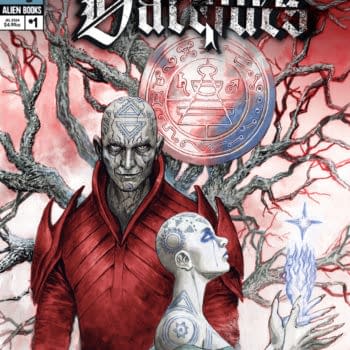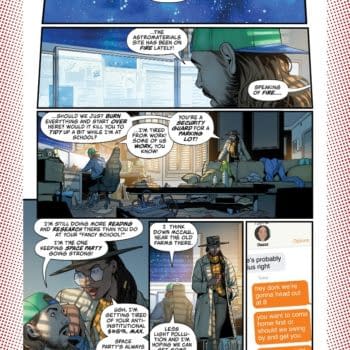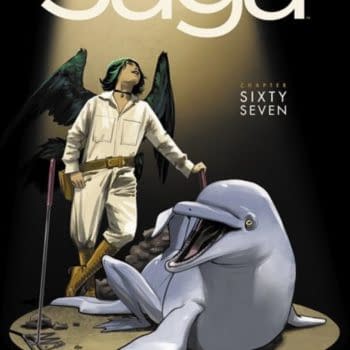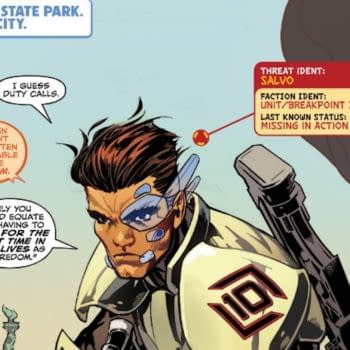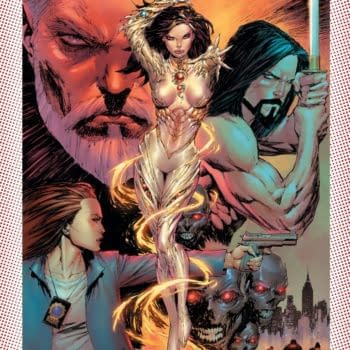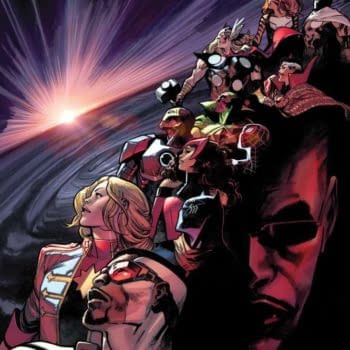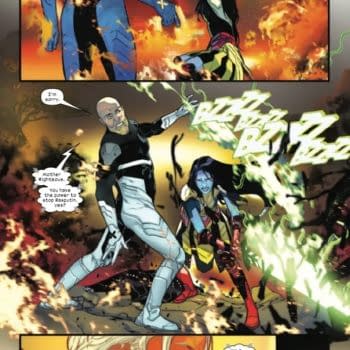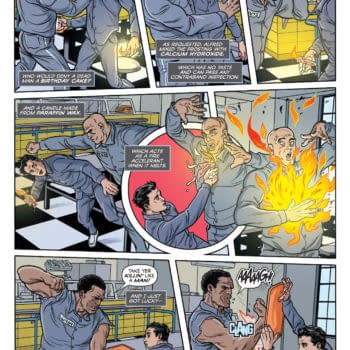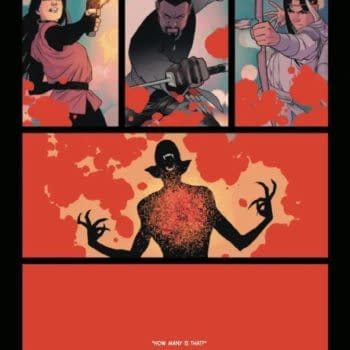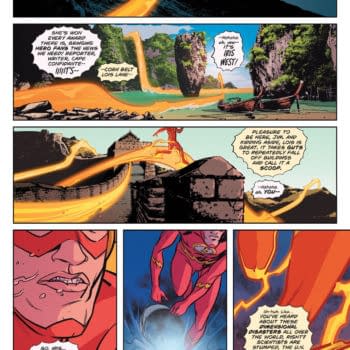Posted in: Comics | Tagged: Comics, entertainment
Reading Civil War II, In The Shadow Of 9/11
Marvel's first Civil War event was steeped in the events in the USA of September 11th, 2001. As America and its allies went to war, first in Afghanistan and then Iraq, when even questioning that decision saw you labelled a traitor, and as the Patriot Act and the rise of Homeland Securities came in, as investigative powers became more invasive and unaccountable than ever before, the balance between Freedom and Security began to tip.
From that, Mark Millar wrote Civil War, with Steve McNiven depicting heroes against heroes, each with a defensible point of view that led to conflict, corruption and incitement.
Today we see Civil War II, described by Eric Francisco of Inverse as one that "ditches the 2006 original's commentary on post-9/11 paranoia and instead questions pre-emptive responsibility."
Thing is, I don't know if it has ditched post-9/11 paranoia, just raised a different kind. It was reading this page again from the Amazing Spider-Man #32 memorial issue of 9/11 by Joe Michael Straczynski and John Romita Jr.
Much of the 9/11 psychological response has been one of fear out of uncertainty. While the possibility of terrorist attack was present in other countries, such as the United Kingdom, in the USA it was not. The nuclear fears of the Cold War had faded and America was secure. The attack of 9/11 were impactful not only for the deaths and destruction they caused but by the population not seeing it coming, not knowing about the issues and conflicts behind the attacks, and an incomprehension that they could happen at all.
Adam Curtis talks about this kind of thing a lot.
Civil War II is, partially, about the possibility of removing that uncertainty. Restoring the idea of a certain world. Giving control back to the country and those who run it. That's where Captain Marvel is coming from.
While Tony Stark is wary of the information, wary of its biases and – has been repeatedly referred to – profiling. That's certainly the authorial intent, to raise the issues associated with #BlackLivesMatter and others. But it's also a look at the reliability of intelligence, the kind of reliance placed in it by authorities without acknowledging its flaws, that led to the Iraq War. And the lack of interest in consequences of actions, that led to the emergence of Isis.
If superheroes are a power fantasy, then superfiction becomes a way to even the odds, gives us a chance to stand up to government, and to examine the actions of power. And you can see 9/11 prominently in the Avengers, Captain America and Superman movies of late, all still in the shadow of the twin towers.
However, it's a dangerous position to be in – there is no Superman coming to save us, we have to do it all ourselves.
Turns out Lex Luthor was right after all.







